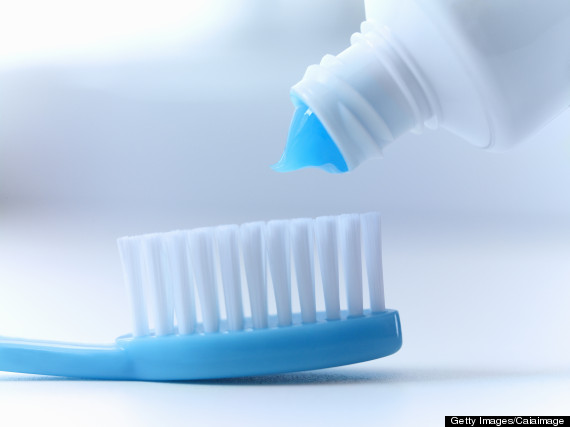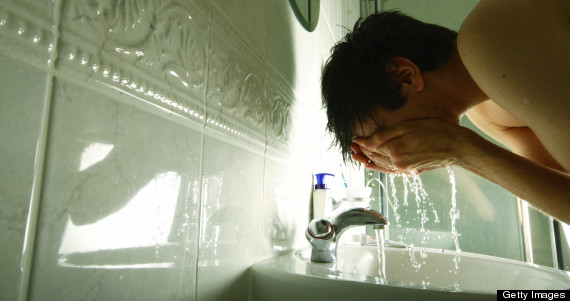By Karen Borsari for Life by DailyBurn[1]
You've heard it all before: Don't watch TV or use the computer in bed. Have your last cup of coffee at noon. Don't work out in the evening... and yet you're still not sleeping! If you struggle with snoozing check out this list of unexpected sleep snatchers. Some of your healthiest habits may be keeping you from drifting off to dreamland.
1. You're an inconsistent eater.
If you eat a balanced dinner most nights but indulge in happy hour and late night burritos a couple days a week you could be damaging more than your diet. Studies show[2] inconsistent eating habits later in the day can negatively affect sleep. If you have dinner later in the evening, that's OK -- as long as you stick with it, every day. If not, skip the unexpected dessert and hit the hay. Consistency is key.
2. Your mouth is minty fresh.
We'd never tell you not to brush your teeth before bed but you may want to try a new toothpaste! Research suggests the scent of peppermint[3] stimulates the brain, making you feel more awake[4] . Try an alternative flavor like strawberry or bubblegum instead.
3. You love a good book.
You may have traded in late-night TV for a little in-bed reading in hopes of a better night's rest. Survey says, this may not be the best bet. Exciting, emotional and intellectually demanding activities before bed can result in poor quality sleep[5] . Skip the tearjerkers and history tomes and try a sports or entertainment magazine, or other light reading instead.
4. You smoke before bed.
You may think an evening cigarette calms the nerves, helping you get you ready for bed. Unfortunately, nicotine is not just a depressant but a stimulant, making it harder for you to fall asleep[6] . If you can't give up cigarettes altogether, start by saying no to before-bed smoking.
5. You splash cold.
Sure, washing your face with cold water[7] helps close pores -- but it also stimulates the body, releasing energy to keep warm and stay awake. Try washing your face with warm water in the evening and save the cold stuff for that early morning wake-up call.
6. You charge up at night.
You've stopped late-night emailing and no longer take your cell phone to bed but chances are, you're charging your electronics at night. Even the handy light that indicates your items are charging is bright enough to disrupt sleep -- especially if it happens to glow blue (blue wavelengths[8] have the greatest impact on circadian rhythm). Try charging your tech in the morning while you get ready for the day or set up a charging station in your home office or living room.
7. You get warm and cozy.
Cuddling up in a nice warm bed may seem like a good start to a restful night, but an increase in body temperature[9] can disrupt sleep. If you snooze with a partner, pet or even a pile of blankets, it may be time to lighten the load and lower your sleep temperature[10] . Just don't go too low; being uncomfortably cold is another surefire way to keep yourself from snoozing.
8. You love lemons.
Tea with lemon might sound like a great alternative to an after-dinner espresso, but it might keep you up just the same. Why? The scent of lemon[11] (and other citrus fruits) can boost mental stimulation and increase energy levels -- not what you need when trying to drift off to dreamland. To catch some ZZZs quickly, skip the lemon-flavored drinks and avoid washing your sheets with lemony fresh detergent.
9. You pop meds before bed.
It may be easiest to remember to take pills before bed but some vitamins, such as B6 and B12[12] , and certain medications, including steroids, have been shown to affect sleep. Talk to your doctor about current prescriptions[13] to find out if mornings might be better. Plus, those pills will be easier to remember once you've had a good night's sleep!
10. You don't DVR.
Because TV watching is one of the few things on the schedule we can control, more nighttime television means less sleep[14] for many Americans. In fact, in one study, more than 68 percent of participants watched TV for more than 55 minutes in the two hours leading up to bedtime -- precious minutes that could be spent sleeping. To minimize TV interference, DVR your must-see shows and tune in earlier in the evening or on weekends.
More from Life by DailyBurn:
10 Simple Snacks for Better Sleep
8 Apps for Guided Meditation
11 Simple Ways to Relieve Stress Now[15] [16] [17]
References
- ^ Life by DailyBurn (dailyburn.com)
- ^ Studies show (www.journalsleep.org)
- ^ peppermint (www.psychologytoday.com)
- ^ more awake (www.wju.edu)
- ^ poor quality sleep (www.ncbi.nlm.nih.gov)
- ^ harder for you to fall asleep (www.journalsleep.org)
- ^ cold water (www.prevention.com)
- ^ blue wavelengths (www.ncbi.nlm.nih.gov)
- ^ body temperature (www.journalsleep.org)
- ^ sleep temperature (www.sleepfoundation.org)
- ^ scent of lemon (www.marieclaire.com)
- ^ B6 and B12 (www.webmd.com)
- ^ current prescriptions (www.sciencedaily.com)
- ^ less sleep (www.ncbi.nlm.nih.gov)
- ^ 10 Simple Snacks for Better Sleep (dailyburn.com)
- ^ 8 Apps for Guided Meditation (dailyburn.com)
- ^ 11 Simple Ways to Relieve Stress Now (dailyburn.com)
- ^ Send us a tip (www.huffingtonpost.com)
- ^ Send us a photo or video (www.huffingtonpost.com)
- ^ Suggest a correction (www.huffingtonpost.com)

0 comments:
Post a Comment